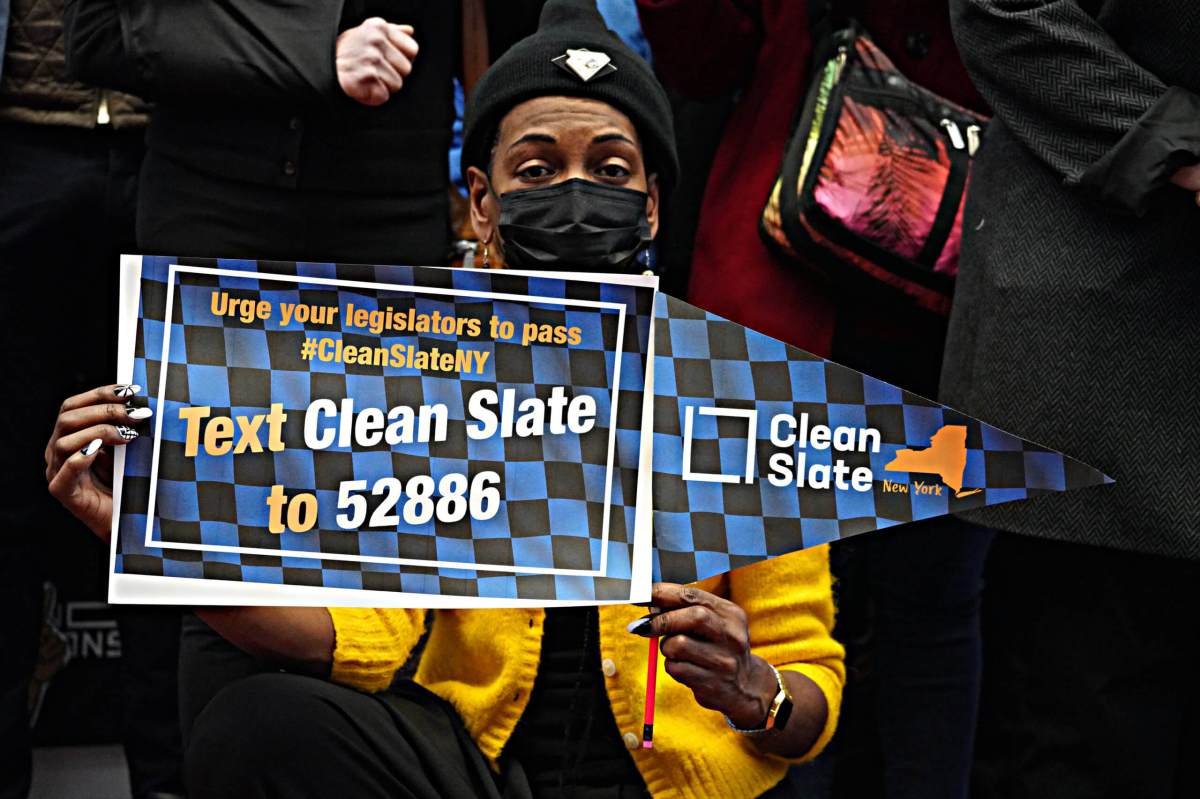New York State is on the verge of a historic expansion of opportunities for approximately 2.3 million New Yorkers with conviction records, who are denied the chance to secure meaningful employment, housing, and education. With just weeks to go until Governor Hochul and the Legislature finalize New York’s 2022-2023 budget, lawmakers from every corner of the state have joined the chorus of major unions, business leaders, BigLaw firms, civil rights advocates, and faith leaders to call for the immediate passage of the Clean Slate Act, vital legislation that we have proudly sponsored in our respective houses. Clean Slate would automatically seal conviction records for civil purposes, like housing and employment, after a waiting period and without subsequent convictions, allowing people to establish a stable foothold in the state’s recovering economy.
The Clean Slate Act is critical for combating poverty and setting New York on the path toward an inclusive recovery. By automatically sealing old conviction records after a person has served their sentence and suitable waiting periods are met, the bill would vastly improve upon our current narrow, application-based sealing process, which less than one percent of eligible New Yorkers have been able to successfully utilize. The ability to seal these records is key to addressing the systemic racial injustice in our criminal legal system, which has left a disproportionate number of Black and brown New Yorkers unable to adequately provide for themselves and their loved ones.
There are several ways this bill would boost economic growth and create stronger communities. First, removing barriers to employment after someone has already served their time is key to breaking the cycle of poverty. According to an analysis from the Brennan Center, formerly incarcerated people lose an average of $484,000 in lifetime earnings, which perpetuates poverty and homelessness and destabilizes communities; the predictable outcome of denying New Yorkers the ability to secure a steady job that allows them to support their families. It is time we offer people the resources they need to succeed, rather than create a lifetime of perpetual punishment.
Second, Clean Slate is an unequivocal way to boost economic growth and tax revenue for our state. Incarceration creates nearly $2 billion in lost wages annually in New York, largely because individuals with past conviction histories face significant barriers entering the workforce and advancing to higher-paid positions. This shortchanges our shared economic growth and depresses tax revenue. Other states which have implemented automatic records clearance laws have seen significant economic benefits. A recent study in Michigan found that within one year of clearing conviction records, people were 11% more likely to be employed and earned 22% higher wages.
Clean Slate also benefits employers at a time when we have a massive labor shortage resulting in more job openings than workers. There is a reason flagship New York employers like JPMorgan Chase support this legislation: it will help them find skilled labor. Clean Slate will increase the eligible pool of workers, a benefit that could not be more important than now. Every New Yorker can contribute to their communities when given the chance.
There is no reason New Yorkers who have fulfilled their justice-system obligations should continue suffering perpetual economic punishment. We owe it to all New Yorkers to act now and pass the Clean Slate Act this session. Both the Assembly and Senate stand ready to work with Governor Hochul to ensure the bill’s passage as part of the final state budget and protect the livelihoods of millions. New York cannot wait.



































